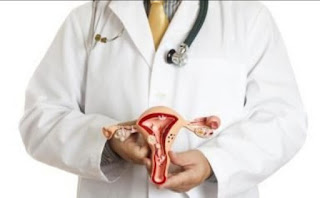"Skin Diseases 101: Identifying Symptoms and Seeking Timely Treatment"
Skin Diseases In Dubai can manifest in various forms, causing discomfort and distress to those affected. Identifying the symptoms of common skin conditions is vital for timely intervention and proper treatment. This article serves as a comprehensive guide to help readers recognize the signs of skin diseases and understand the importance of seeking professional medical advice promptly.
Acne: Acne is a prevalent skin condition characterized by the appearance of pimples, blackheads, and whiteheads. Symptoms include red and inflamed skin, painful nodules, and oily skin. It often affects the face, chest, and back. If over-the-counter remedies do not provide relief or if acne is severe, seeking a dermatologist's assistance is crucial to prevent scarring and achieve effective treatment.
Eczema (Atopic Dermatitis): Eczema presents as red, itchy, and dry patches of skin, often accompanied by swelling and crusting. It tends to occur on the face, hands, and behind the knees. Constant scratching can exacerbate the condition, making it essential to consult a healthcare professional for personalized treatment options and lifestyle recommendations.
Psoriasis: Psoriasis manifests as raised, thick, and scaly patches of skin with a silvery appearance. These patches can be itchy and painful, and they often occur on the elbows, knees, scalp, and lower back. Since psoriasis is a chronic condition, early diagnosis and appropriate management by a dermatologist can help control symptoms and improve the quality of life.
Rosacea: Rosacea is characterized by persistent facial redness, visible blood vessels, and the development of small bumps that resemble acne. Triggers such as sunlight, stress, alcohol, and certain foods can worsen the symptoms. Recognizing the early signs and seeking medical advice can prevent the condition from progressing and reduce discomfort.
Dermatitis (Contact Dermatitis): Contact dermatitis results from exposure to irritants or allergens, leading to red, itchy, and inflamed skin. It can occur immediately or after repeated contact with the triggering substance. Identifying the culprit and avoiding contact is crucial for symptom relief. In severe cases, a dermatologist can recommend suitable treatments to alleviate discomfort.
Hives (Urticaria): Hives are itchy, raised welts that appear suddenly on the skin due to allergic reactions or other triggers. While they typically resolve on their own, recurrent or persistent hives may indicate an underlying condition that requires medical attention. Antihistamines and identifying triggers can provide relief.
Conclusion: Recognizing the symptoms of common skin diseases is the first step towards effective management and treatment. Seeking timely medical advice from a dermatologist is essential for accurate diagnosis and personalized care. With proper intervention and adherence to treatment plans, individuals can minimize discomfort, prevent complications, and improve their overall skin health and well-being. Remember, maintaining a healthy skincare routine and promptly addressing any concerning symptoms can go a long way in achieving healthy, radiant skin.


Comments
Post a Comment